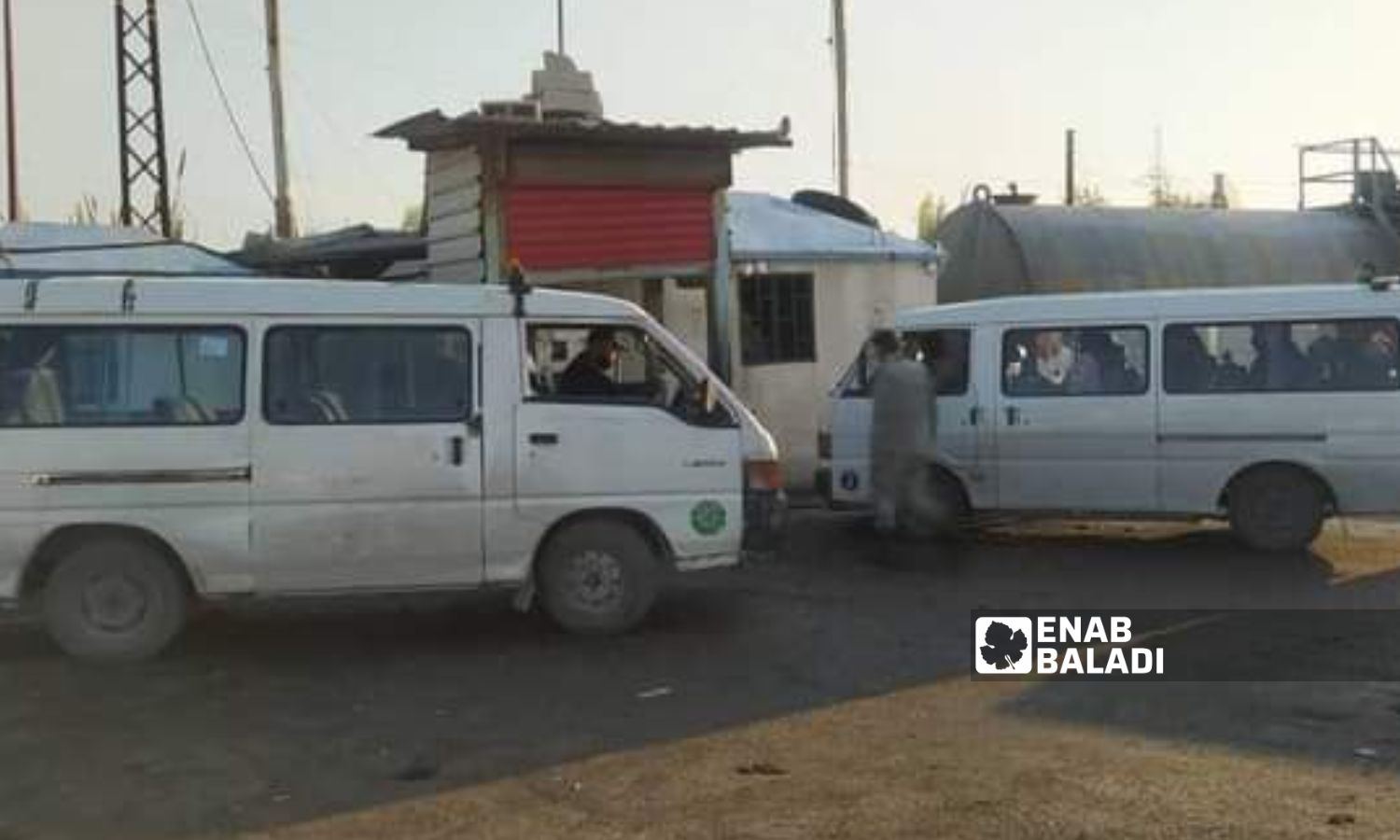



Enab Baladi – Orwah al-Mundhir
Installing a global positioning system (GPS) on public transportation in the areas controlled by the Syrian regime solved the transportation problem for citizens, but it came at the expense of the owners of mini-buses as their buses now stop for long periods waiting for passengers to depart from the main bus stations, in addition to the weakness of their work resources as a result of installing the device.
The government of the Syrian regime imposed on the mini-buses operating on public transport lines in most governorates the installation of a global positioning system that determines the distances traveled during the day, and through it, it will be supplied with fuel at the subsidized price in exchange for working at the prices imposed by the government, which drivers consider not enough.
After implementing the decision to activate the GPS, the government of the regime reduced the rate of fuel consumption per trip, although the distance and route did not change.
With the new work system, the phenomenon of selling allotments of diesel oil on the black market ended, as every mini-bus that does not travel the specified distance on the line specified for it does not receive any allotments of fuel.
Rami Shaaban, driver on the Homs-Rastan line, told Enab Baladi that the transportation department at the departure station has reduced the amount of subsidized diesel from nine to six liters per trip after activating the GPS and stipulated that these allocations be obtained after completing six trips per day.
Shaaban added that after installing the GPS system, all the mini-buses returned to work on their routes in a regular manner, and the problem of transportation moved from the fact that the passenger did not find a means of transportation to the owner of the mini-bus, who “works in vain.”
Shaaban pointed out that the mini-buses operating in the central Homs governorate make less profit than the cost of maintenance, the prices of tires, and the replacement of engine oil, whose costs rise with the depreciation of the Syrian pound against the US dollar, while the fare remains fixed, which puts drivers in a real problem that threatens their source of livelihood.
Farah al-Ahmad, a university student from the town of Kafr Laha in the al-Houla Plain, told Enab Baladi that the transportation problem has already been solved after the implementation of the global positioning system, and the mini-buses are now waiting for passengers as they were before.
Before the implementation of the GPS, the owners of mini-buses used to sell the fuel granted to them at the subsidized price on the black market and profit from the price difference without paying attention to the suffering of citizens, and with the implementation of the decision, this phenomenon ended, and all drivers were obliged to work according to the specified prices and destinations, which was reflected in the prices of the mini-buses after the decrease in the profits they were making.
Ammar al-Jassem, a mini-bus owner in Homs, told Enab Baladi that the mini-buses lost a quarter of their value after the implementation of the tracking system. What used to be about 150 million Syrian pounds has now become 100 million as a result of not making enough profits from working on it.
Al-Jassem added that the mini-bus, which was operating regularly and transporting passengers on the line drawn for it, was achieving a daily increase in the diesel allocated to it on each trip, in addition to the profit made from transporting passengers.
However, after applying the system and reducing the amount of diesel allocated for the trip, these profits decreased, and the mini-bus could hardly afford the price of the necessary periodic maintenance, which reduced its price in the car market.
if you think the article contain wrong information or you have additional details Send Correction